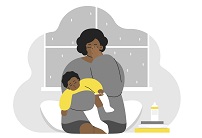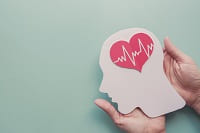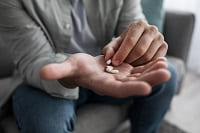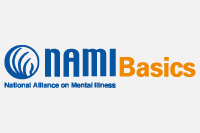
CDC Releases National Survey on High School Student Mental Health
Apr 01 2022
This month, the CDC released results from the 2021 Adolescent Behaviors and Experiences Survey (ABES), the first national survey analyzing the wellbeing of high school students during the COVID-19 pandemic. The report shows how high school students’ mental health has worsened with 37.1% reporting poor mental health during the pandemic. A sense of school connectedness to peers and adults – even virtually – was identified as a protective factor against poor mental health, feelings of hopelessness, suicidal ideation, and suicide attempts. The report highlights the pivotal role schools can play in supporting youth mental health outcomes and calls for increased support. To learn more, see the reports from the 2021 Adolescent Behaviors and Experiences Survey.

Combination Therapy May Be Effective First Line Treatment of Obsessive-Compulsive Disorder in Some Populations, but Potential for Optimization Remains
Mar 16 2022
For individuals with obsessive-compulsive disorder (OCD), psychotherapies such as cognitive behavioral therapy (CBT) are often the first approaches to treatment. Medication or a combination of psychotherapy and medication may be introduced if significant improvement does not occur. In a recent review of treatment guidelines and prior research, the authors note that combination therapy may also be used as a first line treatment, primarily when symptoms are severe. Evidence suggests this protocol may be appropriate due to the potential effectiveness of combination therapy over monotherapy. However, more research is needed to determine which therapeutic approach is appropriate at various points in a person’s treatment. The authors indicate that early diagnosis may be a key factor in treatment success and outcomes. To learn more, see the study in Comprehensive Psychiatry.

Rate of Post-Partum Depression May Have Tripled During COVID-19 Pandemic
Mar 14 2022
New research suggests that the COVID-19 pandemic may have worsened maternal mental health outcomes. Researchers from the University of Maryland surveyed 670 post-partum patients at the height of the pandemic in 2020. Approximately 1 in 3 met the criteria for post-partum depression, triple the pre-pandemic rate of 1 in 8. Additionally, about 1 in 5 experienced symptoms of major depressive disorder. Of those who met the criteria for post-partum depression or major depressive disorder, 18.75% also experienced thoughts of self-harm. Worrying about contracting COVID-19 was a significant risk factor for developing depression. Understanding how to provide social support for post-partum mothers – especially during public health emergencies – is important for improving maternal mental health outcomes. To learn more, see the study in BMC Research Notes.

Risk of Cardiovascular Disease May Be Higher in Adults With SMI
Mar 09 2022
Individuals with serious mental illness (SMI) – schizophrenia, schizoaffective disorder, and bipolar disorder – often experience challenges to their physical health and have a shorter life expectancy compared to the general population. Based on analysis of 600,000 electronic health records, researchers found that adults with SMI had an increased risk of developing cardiovascular disease compared to those without. After adjusting for age, sex, and other factors, individuals with bipolar disorder had the highest risk of developing cardiovascular disease in the next 10 years. Researchers attributed the findings to side effects of psychiatric medication, smoking, elevated body mass index, a higher co-morbidity of diabetes, and decreased preventative care. To learn more, see the study in the Journal of the American Heart Association.

Early Intervention for Psychosis Associated with Reduced Health Costs Over Time
Feb 23 2022
Early intervention has been shown to improve outcomes for individuals with psychosis, and new research suggests the strategy has economic advantages as well. Researchers found that early intervention treatment after an initial psychotic episode reduced health care costs by more than $50,000 per quality-adjusted life year, and individuals experienced fewer hospitalizations and more years of employment. Investing in timely, targeted mental health care is not only critical to individual well-being, but economically worthwhile for individuals and the health care system overall. To learn more, see the study in Psychiatric Services.

Pandemic may be Linked with Inflammatory Brain Markers, Mood Changes
Feb 16 2022
Many people have felt the mental health effects of the COVID-19 pandemic, and new research indicates that even individuals who never contracted the illness may experience stress-related changes in brain function. Researchers used brain imaging and other health metrics to compare “pre-pandemic” and “pandemic” data for individuals who tested negative for SARS-CoV-2 antibodies. Even in these healthy individuals, the data showed elevated levels of inflammatory markers associated with mood issues and fatigue following 2020 lockdown measures. To learn more, see the study in Brain, Behavior, and Immunity, and take a look at NAMI’s Mental Health by the Numbers for additional information on the pandemic’s impact on mental health.

Specific Combination Antidepressant Therapies may be Safe and Effective for Acute Depression
Feb 16 2022
For individuals with depression, multiple antidepressants may be prescribed if the person is not experiencing enough benefit from a single medication. In a recent systematic review and meta-analysis, researchers explored findings from nearly 40 previous studies to assess the tolerability and efficacy of combination therapy compared to monotherapy. Combination treatment was found to offer improved outcomes not only for individuals who did not respond to monotherapy, but also as a first-line treatment in some patients. The researchers also found that certain medication combinations were more effective than others, suggesting that combining any two antidepressants may not provide similar benefits. To learn more, see the study in JAMA.

Mobile Phone-Based Mental Health Interventions Show Positive – but Modest – Results
Jan 18 2022
Mobile phone-based mental health interventions have gained popularity as a potential solution to the cost and access issues of traditional mental health care. A new study analyzed previous research on such interventions, including 145 studies involving 48,000 participants, to determine whether they benefit users as designed. Overall, the study found modest positive results for certain conditions – such as anxiety and depression – but little evidence that mobile-phone based interventions are as effective or more effective than traditional care. More rigorous studies, including a full exploration of potential negative outcomes, are necessary to understand the impact of these interventions. To learn more, see the study in PLOS Digital Health.

Randomized Controlled Trial finds NAMI Basics Effective for Caregivers of Children with Mental Health Symptoms
Jan 18 2022
NAMI Basics is a no-cost education program for parents, caregivers and others who provide care for youth experiencing mental health symptoms. For the first time, the effectiveness of NAMI Basics was tested using a randomized controlled study design. Caregivers were randomly assigned to either a 6-week, peer parent-led NAMI Basics course, or an 8-week waitlist. At the end of the study, caregivers participating in the NAMI Basics course showed increased engagement with their child’s symptoms and intentions to seek out services compared with the waitlist group. Participating caregivers also reported decreased intrapersonal and interpersonal distress among their children. To learn more, see the study in Psychiatric Services.

Access to Gender-Affirming Hormone Therapy Associated with Better Mental Health Outcomes Among Transgender Adults
Jan 12 2022
Transgender individuals often face significant mental health challenges, including a higher risk of suicide compared to their cisgender peers. In a recent analysis of data from the 2015 U.S. Transgender Survey, researchers explored the link between receiving gender-affirming hormone therapy (GAH) in adolescence or adulthood and future mental health outcomes. Among adults who indicated that they had ever desired GAH, those who had received it at any point in their life were less likely to report suicidal behavior in the past year or severe psychological distress in the past month. Further, those who received GAH in adolescence (age 14-17) experienced better mental health outcomes than those who received GAH in adulthood. To learn more, see the study in PLOS One.